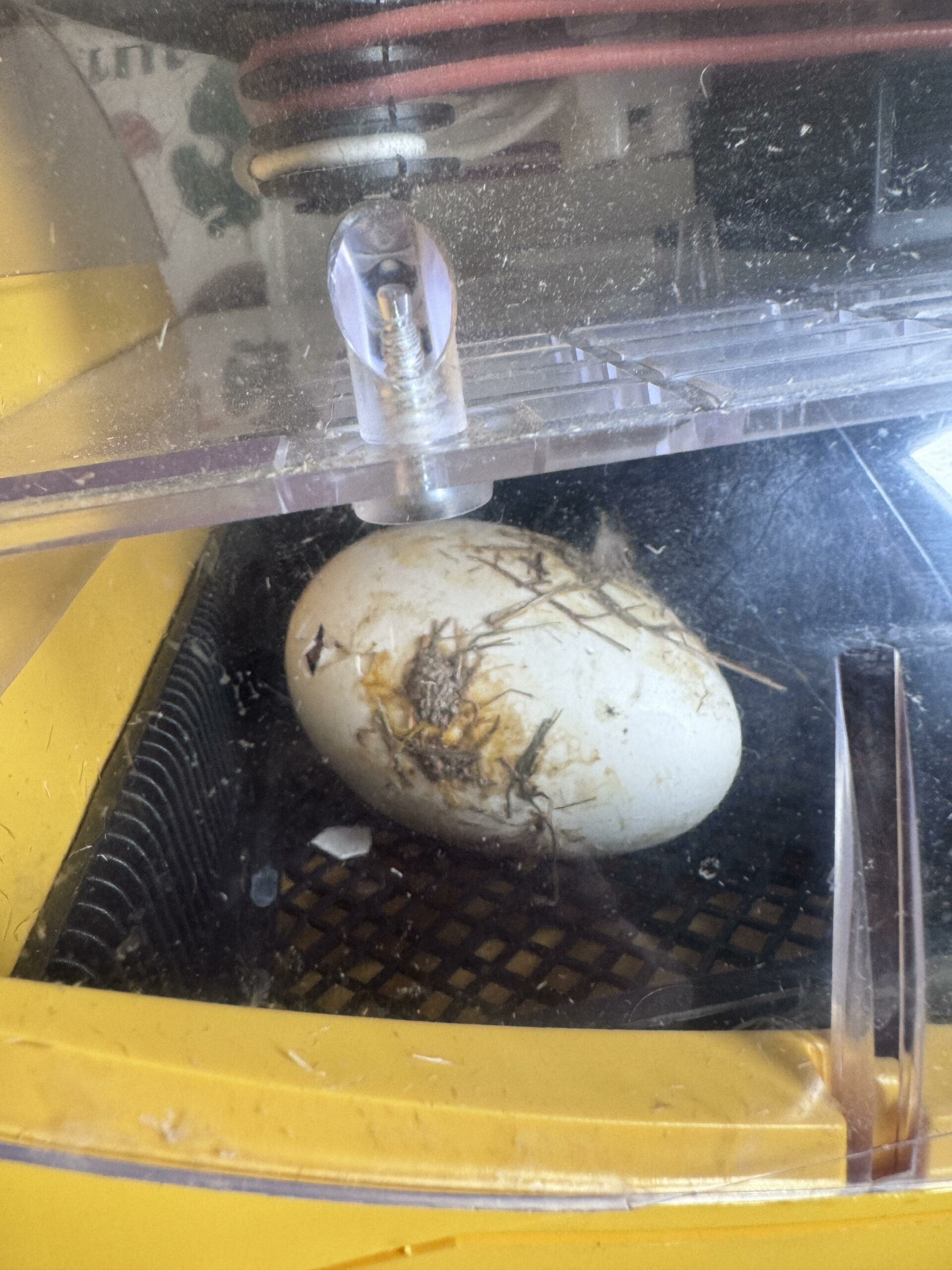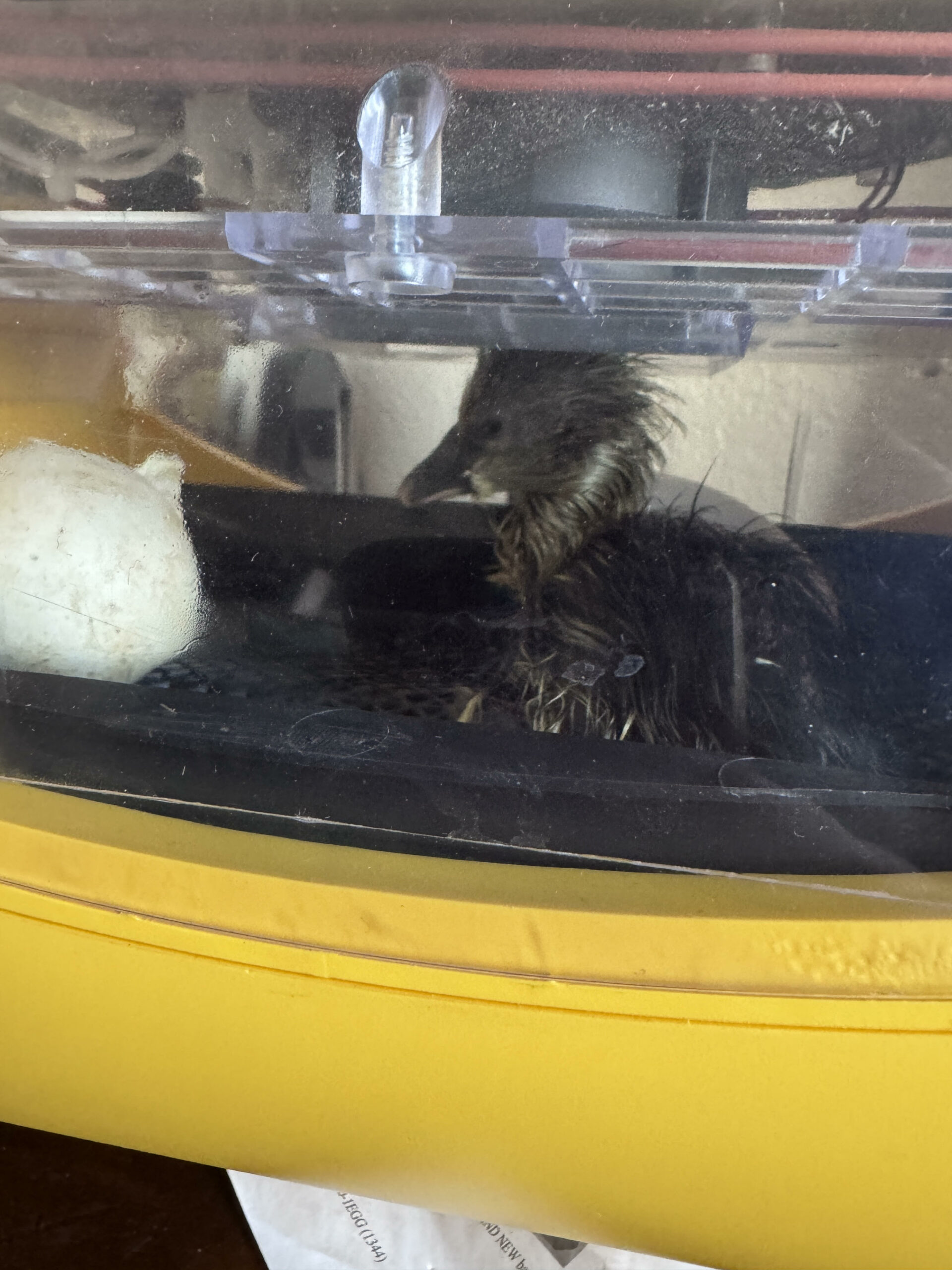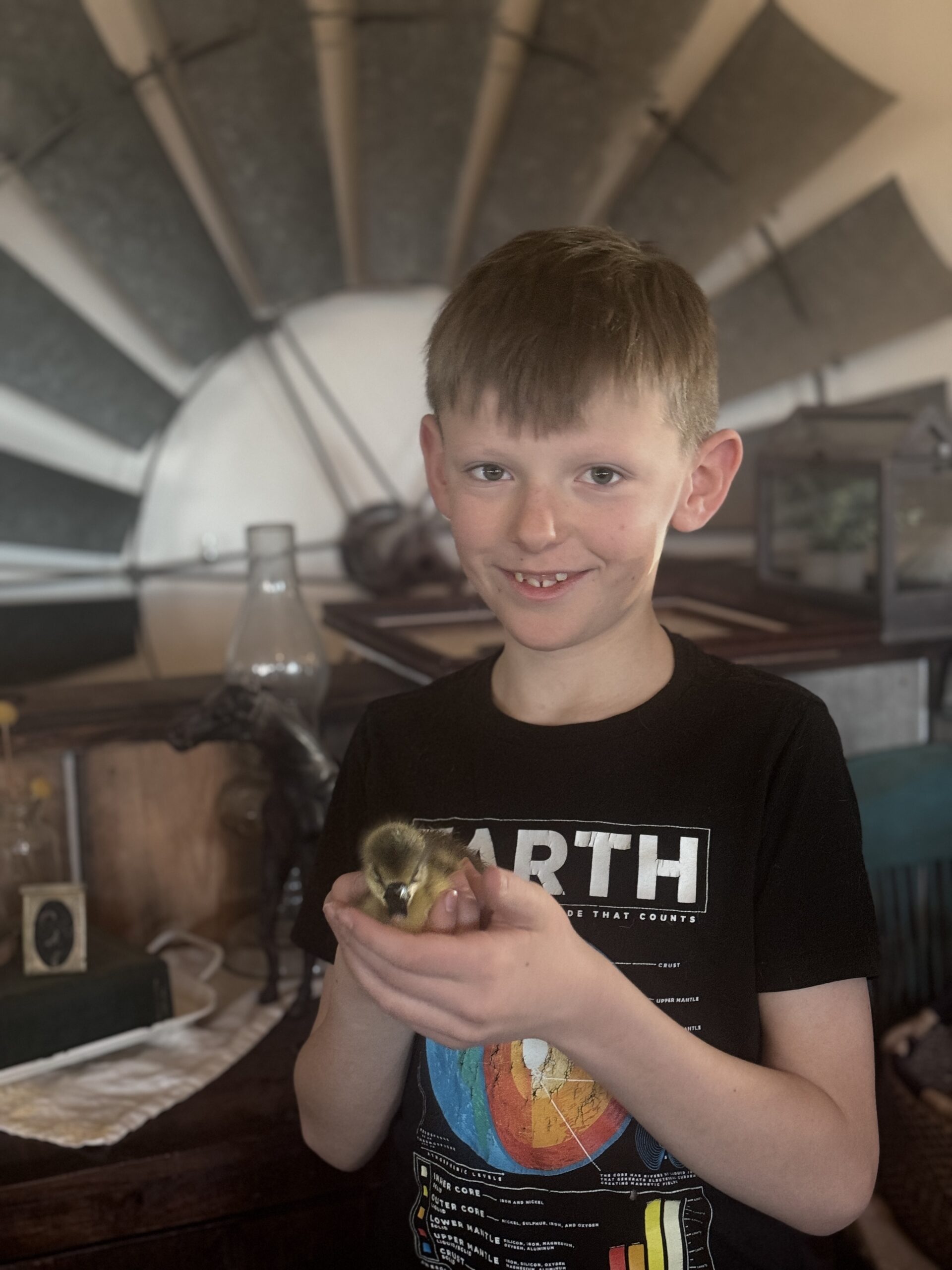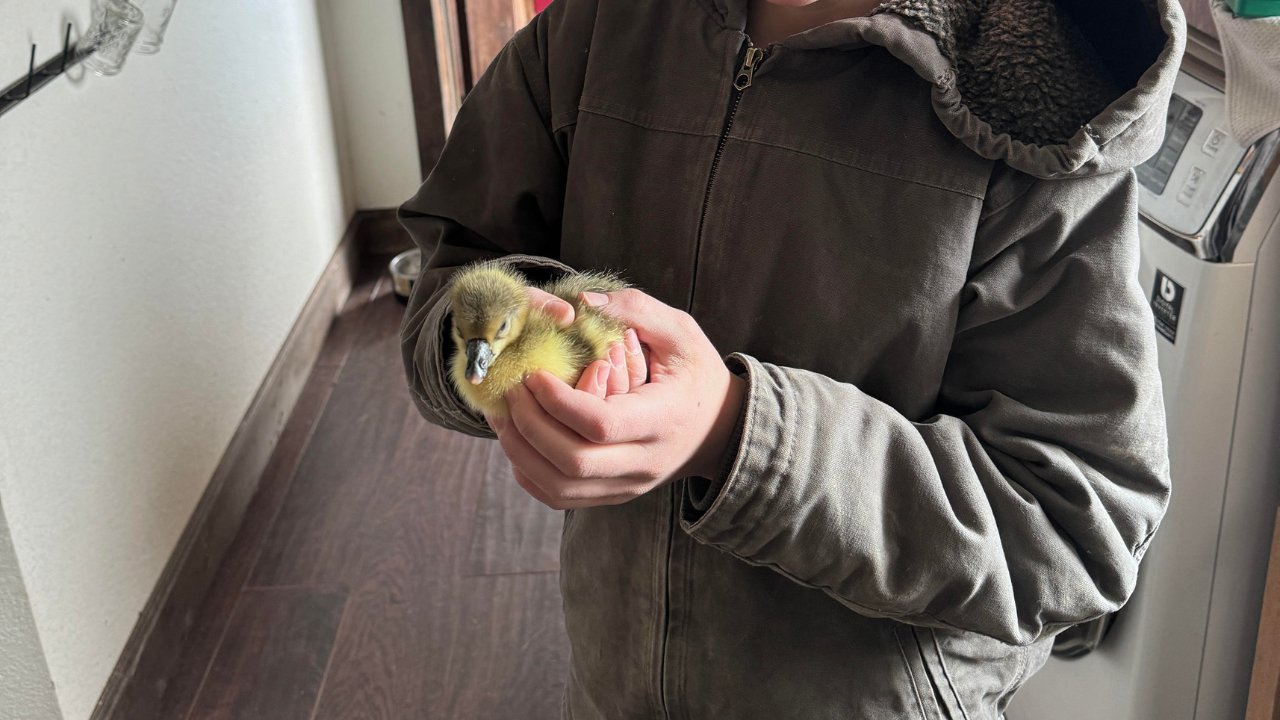“Are you SURE we’re in a position to’t help it??”
My son peered anxiously into the incubator as a result of the little beak poked through the pea-sized hole throughout the shell.
The problem started 3 weeks prior when my two youngest kids (8 and 11) carried 4 goose eggs into the house with a pleading look.
“Pleeeeease mom… can we incubate them?”
Our female goose had constructed a half-hearted nest sooner than deciding she’d reasonably spend her days cavorting collectively together with her boyfriend. My youngsters had been monitoring the state of affairs for quite a few days and finally snatched up the abandoned eggs.
I hesitated at their plea.
The eggs have been most likely not viable. Plus, we hadn’t hatched poultry in years and I’m rusty on incubation logistics.
In between itemizing the soda fountain in the marketplace and loads of totally different points, I merely didn’t have the bandwidth to find out all of it out as soon as extra.
Nonetheless the pet canine eyes have been intense, I decided to make them a deal.
“You can incubate the eggs,” I conceded, “Nonetheless will most likely be YOUR problem. You’ll have to find out run the incubator, candle the eggs, and monitor the humidity and temperatures.”
“And…” I added ominously, “There’s probability they gained’t hatch. Can you cope with that?”
They vigorously agreed.
And they also handled it.
My son study the incubator information choose it was a college mission. He organize the auto-turner, modified the batteries throughout the hygrometer, and obsessively monitored the temperature and humidity.
He watched Youtube films to study to candle eggs, and marked dates on the calendar to asses progress. (He discarded two that stopped rising.) As we inched nearer to our estimated hatch day, he locked down the incubator and prepared for hatching.
I braced the youngsters for the probability that neither egg would hatch.
And I was incorrect.
That morning, squeals of enjoyment rang through the house.
Goose egg #1 had a crack. Hatching had commenced.

The children organize camp subsequent to the incubator and watched it choose it was Netflix.
It’s laborious to resist serving to birds hatch. Our empathy kicks in and we’re in a position to’t help nonetheless take into account this helpless youngster in an alien world, expending SO lots effort to get through the shell. I would see the precedence plastered on my son’s face as a result of the hours handed and the gosling made little progress.
It was killing him to be a passive spectator.
I would inform it was taking each factor he needed to not open the incubator and assist the tiny beak in breaking through the shell. And if I’m being reliable, I was feeling the similar methodology.
”We’re in a position to’t help it,” I outlined to him (and myself, too). “The gosling should battle a bit. If we rush in too shortly, we’ll destroy its probability for survival.”
Appears, this principle moreover applies to parenting.
As soon as we make the path too easy for our youngsters, we damage their growth— just like prematurely cracking the eggshell.
It’s an concept that fascinated me as soon as I wrote about it in Outdated-Unique on Goal.
Stylish parenting custom tells us that GOOD mom and father make their kids’s lives as easy as doable. We’re instructed to remove ALL roadblocks, clear ALL paths, and NEVER allow them to essentially really feel unfavorable emotions or ache.
Nonetheless evaluation reveals it’s the exact reverse dynamic that sorts kids into healthful, functioning adults.
In her new e e book, Harmful Treatment: Why the Children Aren’t Rising UpAbigail Shrier writes that resilience, not fragility, is the norm for teens.
They are much extra succesful than we predict. As soon as we step once more and permit them to find out points out (in smart, age-appropriate settings, in any case) they develop by leaps and bounds.
If I had micro-managed the hatching problem in an effort to make sure success (and presumably cease heartbreak), I might need robbed my son.
Not solely would he have missed the information he gained (he now understands hygrometers increased than I do), nonetheless I might need stolen the enjoyment and confidence he felt the first time he held the gosling in his palms and knew that he EARNED that his victory.

The excellence could be very giant.
And that easy shift transformed a elementary biology concept proper right into a life lesson that’s larger than the sum of its parts.
Make no mistake– it made me anxious to contemplate how upset he’d be if the goslings died… just like it made him anxious to look at the kid battle to interrupt from the shell.
Nonetheless every struggles have been important for a robust, healthful finish end result.
And we every wanted to step once more and let it happen.
In direction of the tip of her e e book, Shrier concludes that “parenting by subtraction” is the one path forward in a well-meaning world that is unintentionally stunting its offspring.
And the best way will we apply this?
If we want resilient youngsters that hatch into succesful, well-adjusted adults, we should always do a lot much less.
We should always make room for additional autonomy, additional errors, and further healthful battle.
It seems to be the important thing sauce for teens and goslings alike.

Prolonged story fast— every eggs hatched, no matter my preliminary pessimism. We ended up serving to the first egg after about 36 hours. Our incubator does a poor job of sustaining right humidity and the gosling wished help working through the leathery membrane. Nonetheless I’m glad we waited, as leaping in too early would have been disastrous (regardless that we have now been all tempted).
My youngsters have been over the moon and SO pleased with themselves. My son walked on air for at least 24 hours and saved repeating, “I can’t take into account I did all of it alone!”
He’s already amassing eggs for his subsequent hatch.
Parenting by Subtraction,
-Jill
P.S. I can’t counsel Harmful Treatment enough. I devoured the e e book in 3 days and would possibly’t stop desirous about it.
P.S.S. I am NOT a goose hatching expert, nonetheless in our evaluation we realized that the overwhelming majority of eggs do NOT want help– significantly in the event that they’re hatched in right circumstances. Our gear shortcomings messed that up a bit. Nonetheless in case you at current have an incubator working for the first time– err on the side of prepared, not serving to. 🙂

